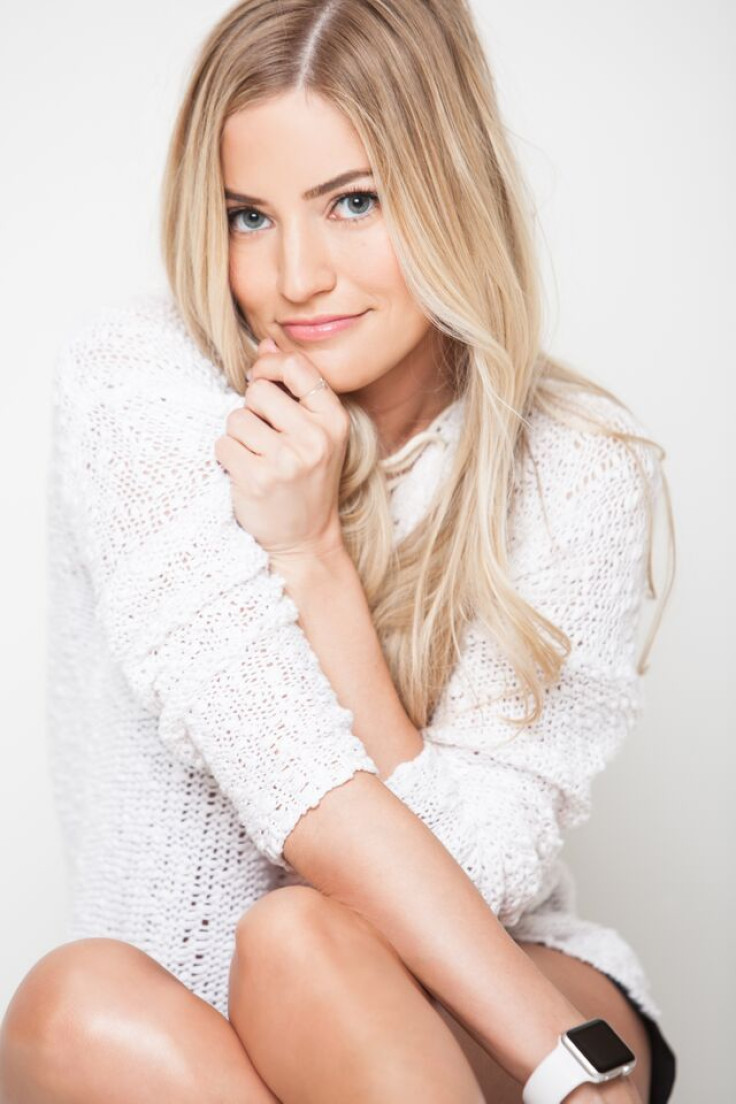YouTube Star iJustine Publishes Her First Book; Reveals The Challenges Of Online Stardom

It all started with a love for Apple products, gadgets and technology. Now, Pennsylvania-born Justine Ezarik, known online by her alter ego iJustine, is one of the most familiar faces on YouTube. The 31-year-old Internet celebrity has more than 2.2 million subscribers on the video sharing site, nearly a million followers on Instagram and more than 1.79 million followers on Twitter.
Ezarik attended New York Book Con in Manhattan this past weekend to promote her first book, “I, Justine: An Analog Memoir,” a project that details her online rise to fame. International Business Times sat down with her to discuss the writing process, the difficulties of being a YouTube star and what careers she would pursue if she didn’t make a living online.
IBT: How long did it take you to write your book?
Justine Ezarik: We started working on it a year and a half ago. It was weird because I was going through all my tweets, all my Facebook posts, all my Flickr, all my social media and trying to make a timeline of my life, and remember things, and that was the hardest process, going through and trying to match things up and figure out, "OK, I tweeted this, what was actually going on in my life?" It was really fun. The last three months leading up to the deadline is when it really got crazy.
IBT: Did you receive any help?
JE: I did, thankfully. When I first started my drafts, I was basically writing as if I was writing tweets, and they told me, "A paragraph is like five tweets, so let’s put some of these tweets together." I’m so used to writing vlogs, so writing a book was a completely different process. But it was so much fun, and the whole team at Atria and Keywords has been so great to work with. They understand, as a YouTuber, how we kind of operate.
IBT: You’re the original YouTube star, but the social network has changed so much in the past decade. How should YouTubers stand out if they want to get their content noticed today?
JE: That’s the coolest part about it. Anybody can do this. Anybody really can, you just have to want to do it enough. You have to want to create content that other people are going to actually care about. A lot of times, it’s your motivation behind what you’re doing. If you just want to be famous, sometimes that’s not going to work out. I never wanted to do this. I don’t consider myself famous. I loved video editing and production and design and wanted to do this to teach myself to edit. It was never because I wanted to make a YouTube channel or move to LA. That just happened.
IBT: What do you see yourself doing in the future? Would you want to quit this and work a 9-5 job?
JE: I don’t know. I think 9-5 jobs are so different. Everyone now works 24-7, so if you can find a job that fits into your lifestyle, it’s so important. I don’t know what I’d be doing, but I’d definitely be doing something creative, whether it’s producing or editing or design or creating websites.
IBT: How do you deal with negativity online?
JE: That’s one of the things you have to think about. These are kids, they are very young and they don’t know what they’re saying. A lot of times they are going through stuff in their lives, and this is the only way for them to feel better, is to take that anger out on someone else. It’s very sad. I don’t think you could ever stop bullying, but you can make people aware of it and how it affects people.
IBT: Your book talks about the challenges of broadcasting your life and how it affects personal relationships. What are some precautions you take?
JE: My good friend was in so many of my videos, and it just got to be too much for her. It’s a full-time thing and you’ve got to be able to take the criticism and it sucks. It is awful. There are some days where I’ve gotta close my computer. I think, "I can’t read this," because I’m gonna get really angry. Even now, I don’t like to film other people. I don’t want to put them in a position where they have something terrible said about them, and then I feel responsible. I didn’t write the comment, but I gave them the comment to have that said. There’s so many things you have to think about, it can sometimes take the fun out of it.
IBT: Do you often see a difference between the online personas of YouTubers and who they are in real life?
JE: That’s what is so weird about YouTube, you’re used to seeing people for what they are. And that sometimes can be tricky, too. These people are playing characters and that’s not actually them. That’s the biggest divide that I’ve seen.
Ezarik’s book, “I, Justine: An Analog Memoir,” is now available.
© Copyright IBTimes 2024. All rights reserved.












